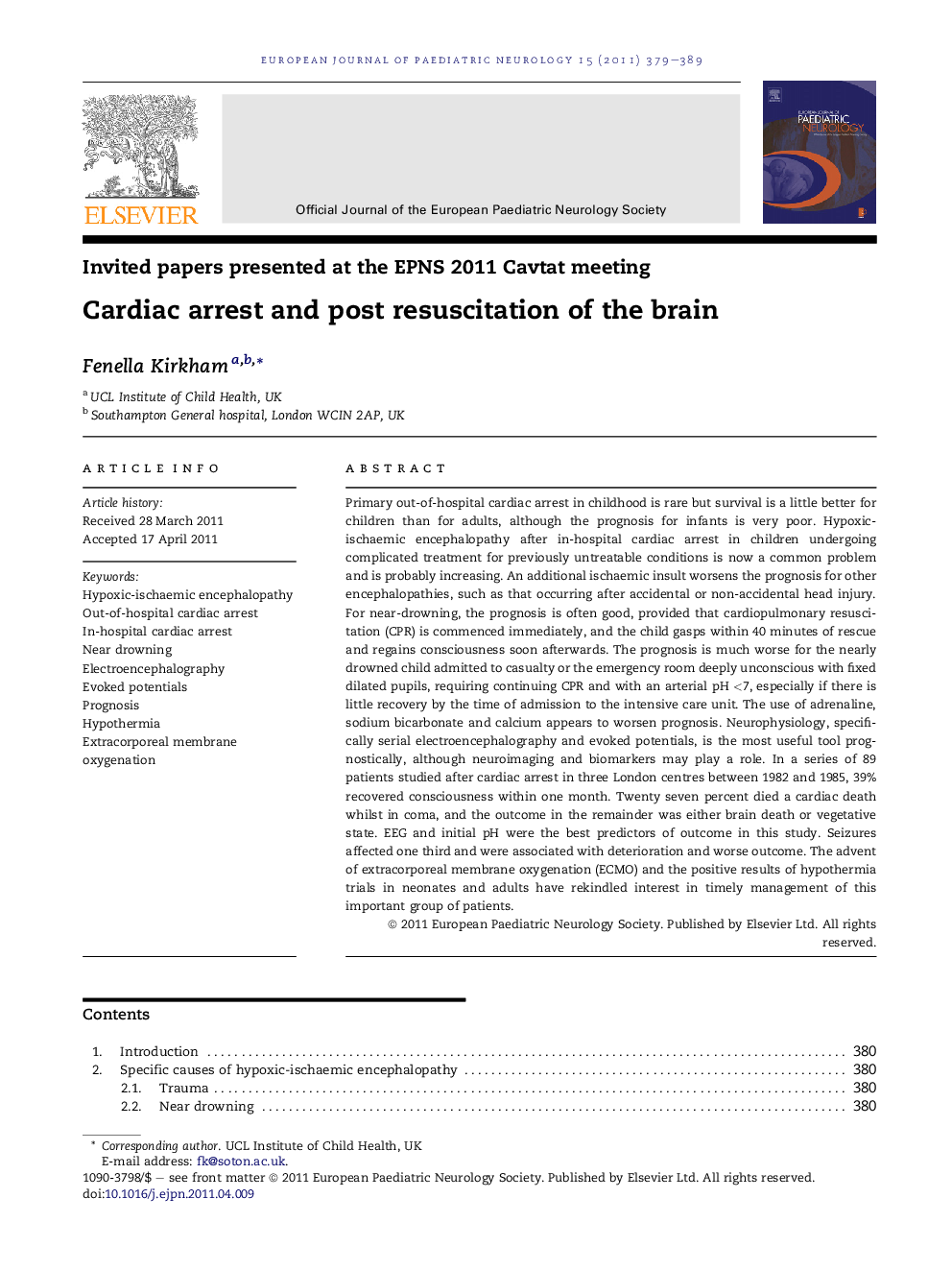| کد مقاله | کد نشریه | سال انتشار | مقاله انگلیسی | نسخه تمام متن |
|---|---|---|---|---|
| 6016805 | 1580038 | 2011 | 11 صفحه PDF | دانلود رایگان |

Primary out-of-hospital cardiac arrest in childhood is rare but survival is a little better for children than for adults, although the prognosis for infants is very poor. Hypoxic-ischaemic encephalopathy after in-hospital cardiac arrest in children undergoing complicated treatment for previously untreatable conditions is now a common problem and is probably increasing. An additional ischaemic insult worsens the prognosis for other encephalopathies, such as that occurring after accidental or non-accidental head injury. For near-drowning, the prognosis is often good, provided that cardiopulmonary resuscitation (CPR) is commenced immediately, and the child gasps within 40 minutes of rescue and regains consciousness soon afterwards. The prognosis is much worse for the nearly drowned child admitted to casualty or the emergency room deeply unconscious with fixed dilated pupils, requiring continuing CPR and with an arterial pH <7, especially if there is little recovery by the time of admission to the intensive care unit. The use of adrenaline, sodium bicarbonate and calcium appears to worsen prognosis. Neurophysiology, specifically serial electroencephalography and evoked potentials, is the most useful tool prognostically, although neuroimaging and biomarkers may play a role. In a series of 89 patients studied after cardiac arrest in three London centres between 1982 and 1985, 39% recovered consciousness within one month. Twenty seven percent died a cardiac death whilst in coma, and the outcome in the remainder was either brain death or vegetative state. EEG and initial pH were the best predictors of outcome in this study. Seizures affected one third and were associated with deterioration and worse outcome. The advent of extracorporeal membrane oxygenation (ECMO) and the positive results of hypothermia trials in neonates and adults have rekindled interest in timely management of this important group of patients.
Journal: European Journal of Paediatric Neurology - Volume 15, Issue 5, September 2011, Pages 379-389